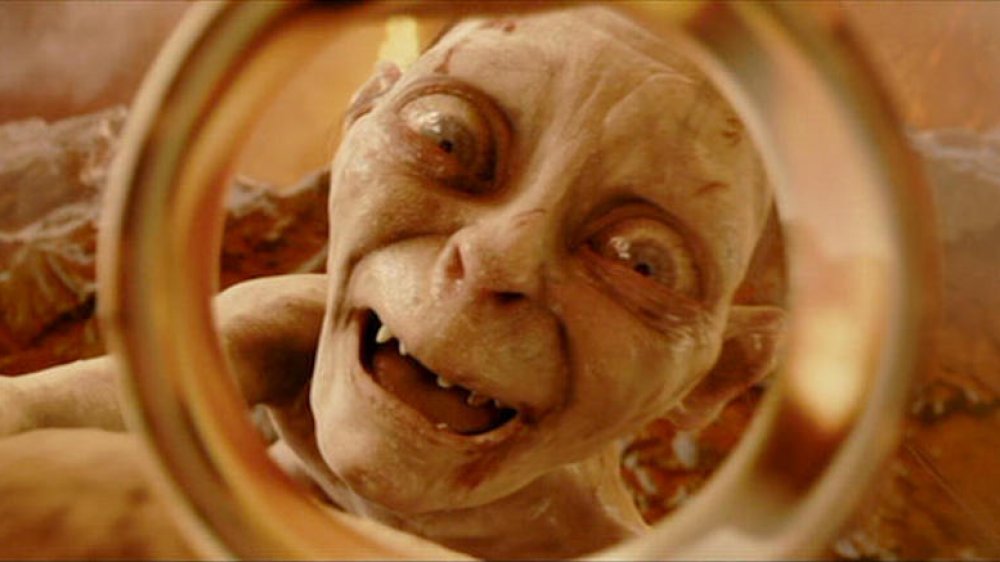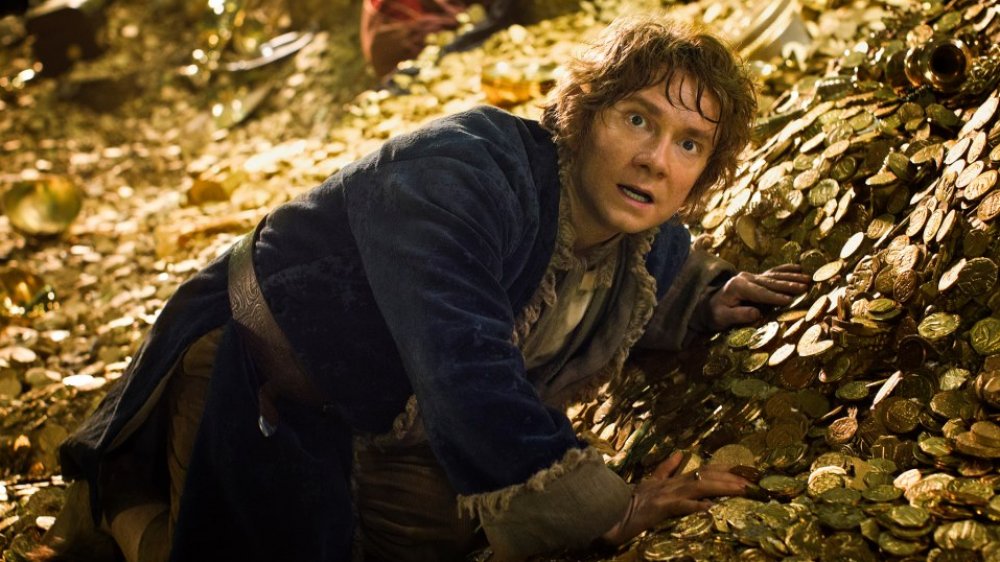Here's How Much Money The Lord Of The Rings Franchise Has Made
It might be a bit difficult to actually wrap your head around the fact, but almost two decades have passed since Peter Jackson unleashed the first chapter in his long-gestating adaptation of J.R.R. Tolkien's fantasy tale The Lord of the Rings upon eager fans. Luckily for the world — particularly the studios who backed the pricey, simultaneous production of Jackson's trilogy — 2001's The Fellowship of the Ring was met with wide critical praise and a fantasy-loving audience hungry to devour the director's visionary exploration of Tolkien's Middl-earth tales.
Even more impressive than The Fellowship of the Ring's critical and commercial success is that Jackson and co. actually outdid themselves on all fronts with the subsequent sequels, 2002's The Two Towers and 2003's The Return of the King. The cherry on top of The Lord of the Rings' unparalleled success came, of course, at the 2004 Academy Awards ceremony where the trilogy-capping The Return of the King cleaned up — taking home a statue for Best Picture and netting a Best Director win for Jackson.
While critical adoration and awards season glory are all well and good, the sad truth of the entertainment biz is that movies, particularly franchises, are measured not by glowing reviews or coveted trophies but by how much of the old do-re-mi ends up in a studio's coffers. It'll come as no particular shock to anyone at this point, but Jackson's original The Lord of the Rings trilogy scored a cinematic trifecta by also delivering the goods at the box office.
The first three films in Jackson's Middle-earth franchise raked in nearly $3 billion worldwide. And no, that number doesn't account for DVD or memorabilia sales, or the sale of the trilogy's television broadcast rights.
Say what you will about The Hobbit movies, but they also made some serious coin
That multi-billion-dollar take-home also doesn't account for the surprisingly robust box office returns of Jackson's follow-up trilogy that began with 2012's The Hobbit: An Unexpected Journey.
Jackson was initially not meant to direct The Hobbit trilogy. Genre favorite (and future Oscar-winner) Guillermo del Toro was actually lined up to helm the new movies, a prelude to the central action in Jackson's films. Sadly, studio shortcomings eventually left the project's production in peril, and forced del Toro to vacate the director's chair.
Against his own better judgment, Jackson ended up filling the empty director's chair himself, and set out to bring the $700-million-dollar trilogy to the big screen in his own way. It's clear throughout the Hobbit trilogy, however, that Jackson's heart may not have been completely in the franchise anymore. The Bilbo Baggins-centric films largely proved sluggish to both fans and critics. Where the Lord of the Rings films all earned over 90 percent approval ratings on Rotten Tomatoes, The Hobbit: An Unexpected Journey came in at 64 percent, The Hobbit: The Desolation of Smaug at 74 percent, and The Hobbit: The Battle of the Five Armies at a grim 59 percent.
Surprisingly, it seems that the Lord of the Rings fanbase was still quite eager to gorge on Jackson's second Middle-earth trilogy — the one place the Hobbit films didn't disappoint was at the box office. The three Hobbit films earned nearly $3 billion globally altogether, essentially doubling the Lord of the Rings' franchise total to a mind-blowing $5.9 billion.
Frankly, those numbers make the $250 million Amazon Studios doled out for rights to the upcoming Lord of the Rings series seem like a big-time bargain.

